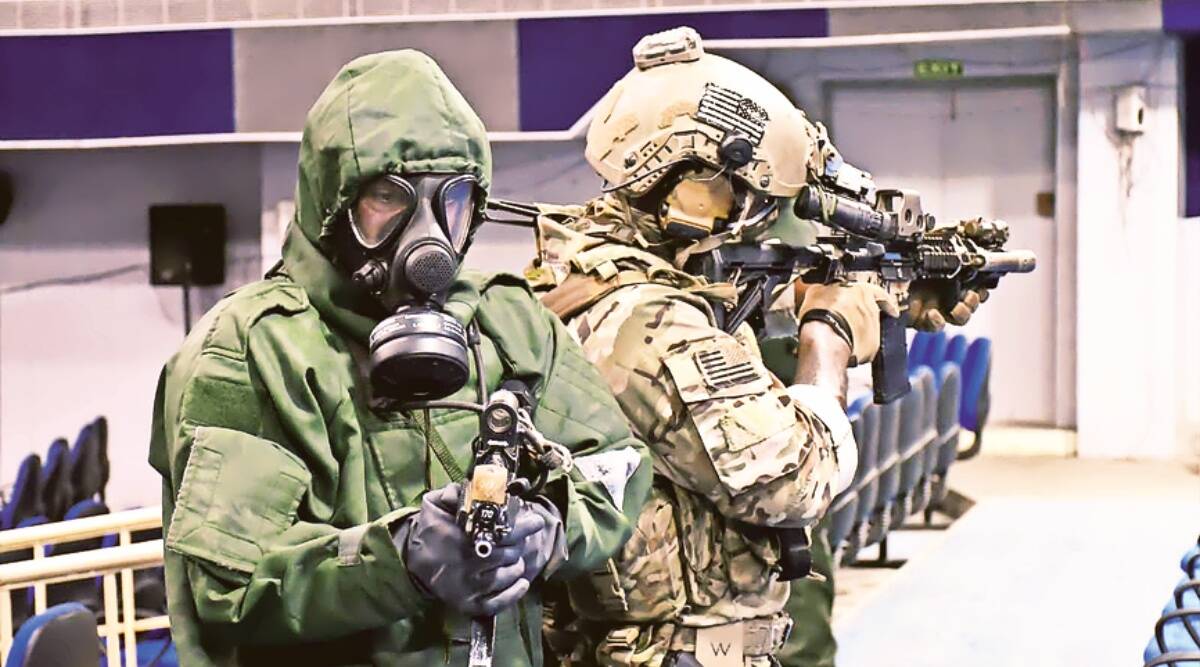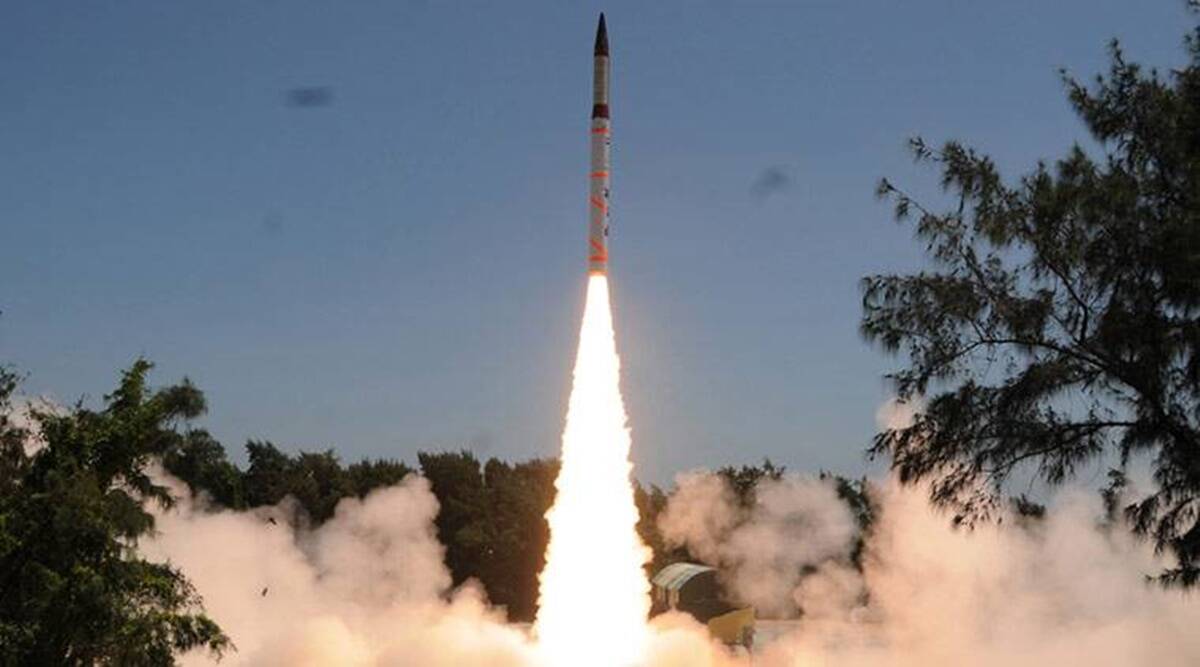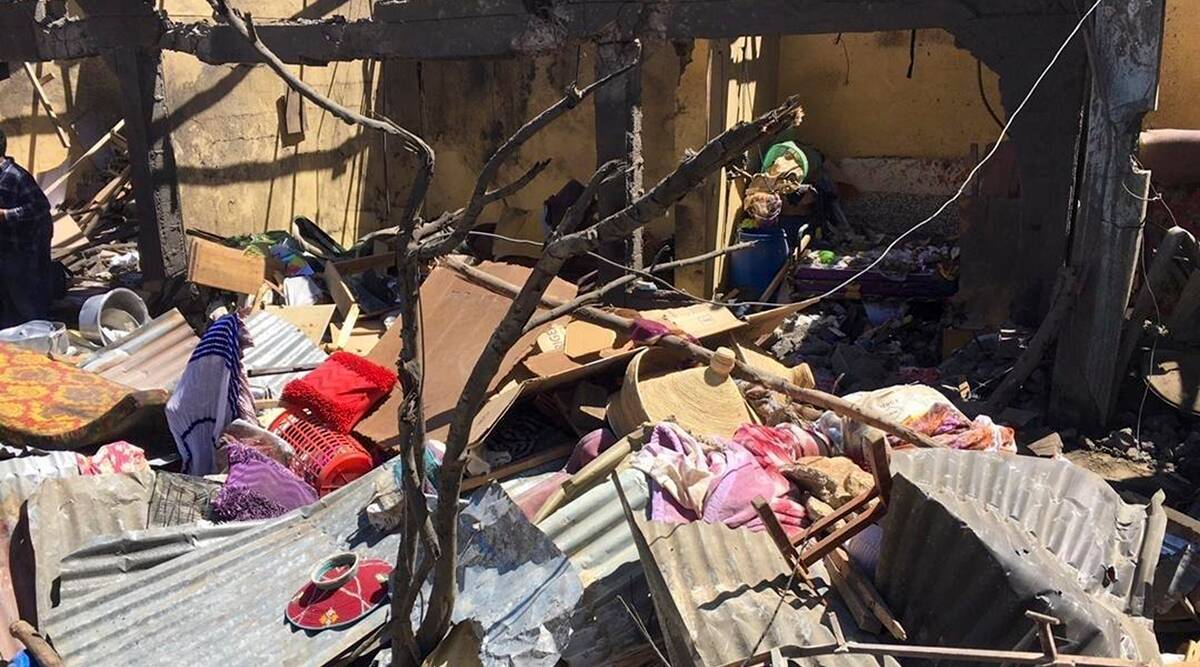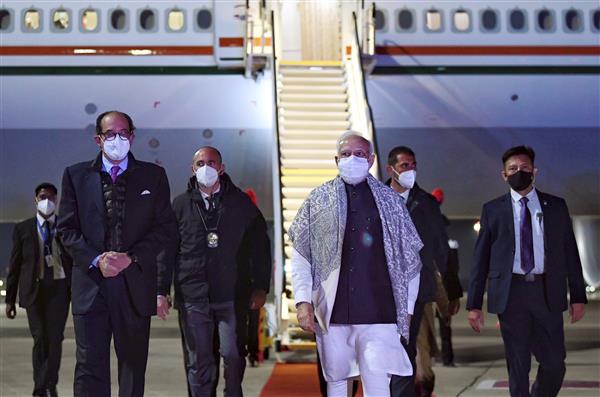
02/11/2023
New Delhi, Feb. 11: For the first time, India-US exercise includes response to nuclear and bio-terrorist attacks
With chemical and biological warfare being recognized as an emerging threat to the world, “Chemical, Biological, Radiological and Nuclear (CBRN) Terror Response” has been included for the first time in the ongoing Indo-US joint exercise. The exercise, named Tarkash, by the National Security Guard (NSG) and the US Special Operations Force (SOF) is currently underway in Chennai.
This is the sixth edition of the exercise which began on 16 January and will conclude on 14 February. The exercise comes in the backdrop of Russian allegations against Ukraine in May last year that Kyiv had planned a chemical attack in Kharkiv in order to blame Russia and get military aid from the West.
Sources said that the various anti-terrorist drills conducted during the Chennai exercise also included an exercise to counter chemical and biological attacks by terrorists. “The joint exercise, for the first time, simulated a verification exercise for Chemical, Biological, Radiological and Nuclear (CBRN) Terrorist Response Mission. During a mock verification exercise, a terrorist organization armed with chemical agents threatens to attack a convention hall during an international summit. The joint exercise by NSG and US (SOF) teams was aimed at rapid neutralization of terrorists, safe release of hostages and neutralization of chemical weapons being carried by terrorists. Sources said the exercise included small team entry into the target area by IAF helicopters, successful intervention in a large auditorium, rescue of hostages and neutralization of chemical agent weapons.
“The training provided an opportunity to both the forces to gain proficiency and enhance the skill set for an effective CBRN terror response. Subject matter experts in chemical, biological, radiological and nuclear warfare from US Special Forces and the NSG exchanged valuable knowledge in dealing with the CBRN threat in an urban counter-terrorist environment. Reached for comment, NSG Director General MA Ganapathy said, “The NSG has to stay abreast of future threats to national security and has developed specialized capabilities to effectively deal with CBRN threats.”
During the joint exercise, both the forces also conducted a joint mock counter-terrorist exercise at multiple locations in Chennai to enhance interoperability and coordination between the two special forces.
“The joint exercise between the two forces involved sharing of best practices and tactics on a wide spectrum of counter-terrorist operations in urban environments, including close combat, build up intervention exercises, hostage rescue operations, surveillance, long-range Sniping and planning are included in the complex. Operation involving multiple targets at multiple locations,” the official said.
CBRN weapons, which are also classified as weapons of mass destruction, have been used by states and terrorist elements in the past. The most recent use of CBRN in the form of a sarin gas attack was seen in Syria in 2017 when over 100 people were killed.
According to the United Nations, the potential for non-state actors, including terrorists and their supporters, to access and use WMD or CBRN poses a “serious threat to international peace and security”.
“Over the years, terrorist groups have tested new ways and means of obtaining and using more dangerous weapons to maximize damage and incite terror, including weapons that incorporate CBRN materials. With advances in technology and the expansion of legal and illegal commercial channels, including the dark web, some of these weapons have become increasingly accessible,” the UN said.-Agencies






